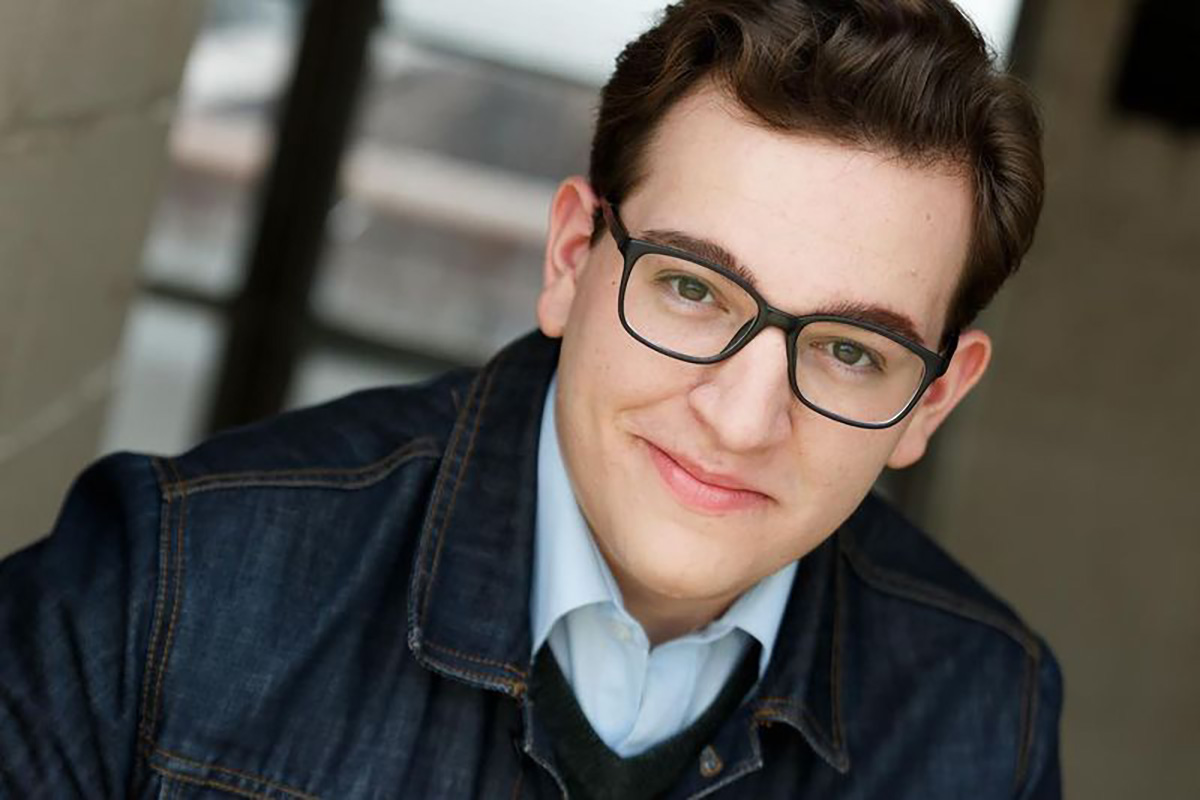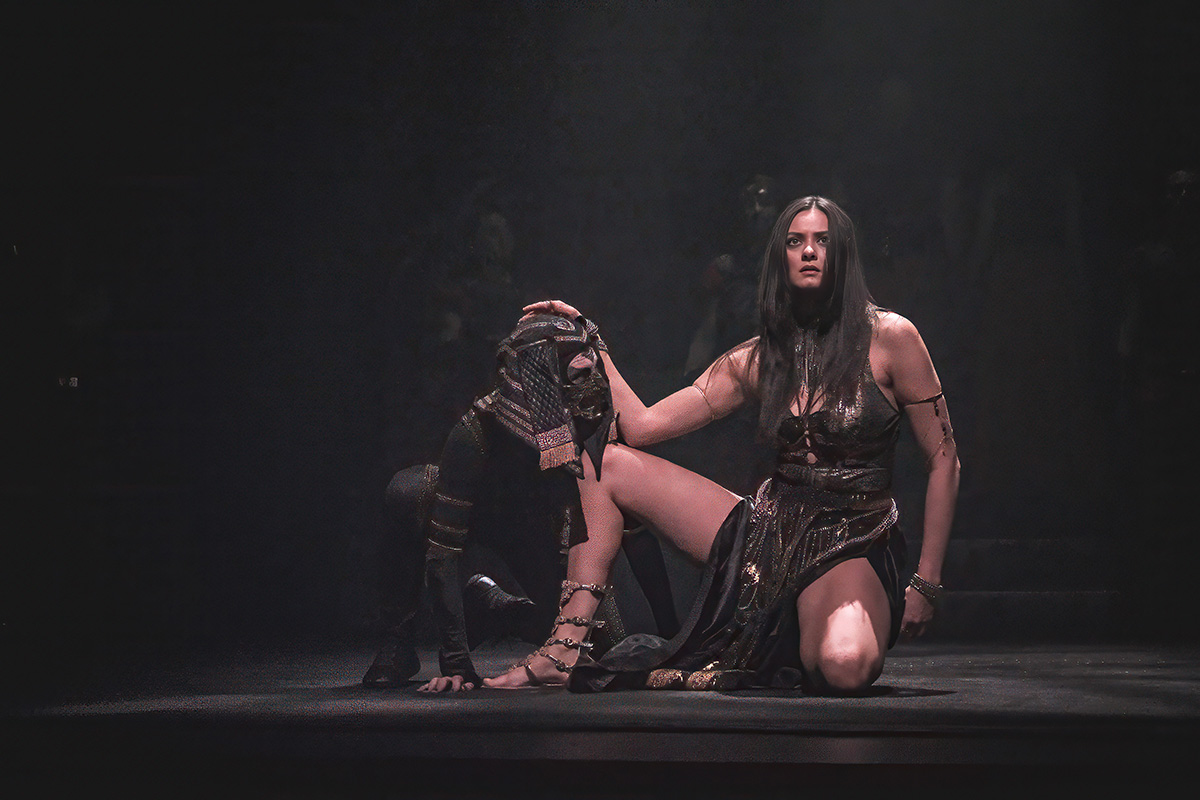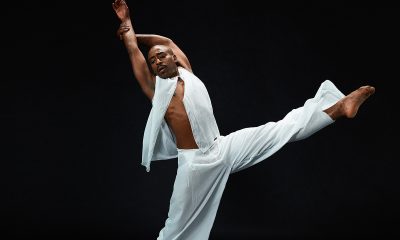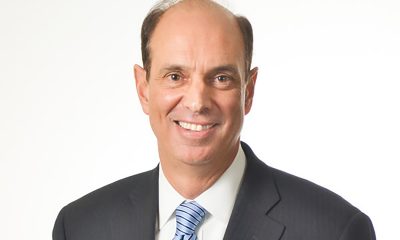Theater
D.C. holiday theater preview 2024
Need a little cheer? We’ve got you covered

In need of a little cheer? Fortunately, there’s a fix. The DMV boasts a wealth of holiday-themed theater, music, and dance guaranteed to lift spirits and warm hearts. Here’s a sliver of what’s out there.
Arena Stage invites audiences “to step back into the holiday spirit with the joyful return of ‘Step Afrika!’s Magical Musical Holiday Step Show’ (Dec. 13-22) where the rich tradition of African-American stepping blends with the magic of the season.” DJ Nutcracker and his Arctic friends promise to amplify the festive atmosphere. Arenastage.org
Looking for a new way to experience a Christmas favorite? With the Kennedy Center’s “Elf in Concert: Film with Live Orchestra” (through Dec. 1), you can relive the endearing comedy on a giant screen as every note of John Debney’s wonderful score is played live by the National Symphony Orchestra.
Another Kennedy Center holiday treat is “Finn” (through Dec. 22). From Chris Nee, the out creator of TV’s “Doc McStuffins” and “Vampirina,” “Finn” is filled with vibrant sea creatures and catchy tunes. Hilarious and heartening, this world premiere musical chronicles the coming-of-age journey of a young shark following his dreams. Kennedy-center.org
For those in search of yuletide camaraderie and keyboards, there’s the National Cathedral Christmas Day Organ Recital (Dec. 25), a tradition featuring festive music performed (at the Cathedral) by Cathedral organist Thomas Sheehan, and organ scholar Ariana Corbin. Tickets not required. Livestream available. Nationalcathedral.org
At Baltimore Center Stage, ArtsCentric’s production of “Black Nativity” (Nov. 30-December 22) uses a fusion of blues, soul, jazz, spirituals, dance, and the powerful words of gay poet Langston Hughes, to tell the Christmas story through a wide-ranging African-American lens. Centerstage.org
For one night only, the Music Center at Strathmore in North Bethesda presents “A Swingin’ Little Christmas!” (Dec. 4), a nostalgic, Christmas kitsch cabaret featuring out TV star Jane Lynch (“Glee,” “The Marvelous Mrs. Maisel”), alongside Kate Flannery (“The Office”), Tim Davis (“Glee’s” vocal arranger), and The Tony Guerrero Quintet.
The following night, Dave Koz and Friends celebrate the 27th anniversary edition of the longest running jazz-based Christmas tour at Strathmore on Dec. 5. Koz, a longtime out musician (primarily sax), has released eight holiday albums, including his most recent, “Christmas Ballads.” Strathmore.org
Round House Theatre presents the world premiere of “A Hannukah Carol” (through Dec. 29). The family-friendly musical comedy tells the story of millennial influencer Chava Kanipshin who in pursuit of more followers, shuns family, friends, and holiday traditions. But on the first night of Hanukkah, Chava is visited by the ghost of deceased social media star Mimi Marley and other spirits who warn her to change her ways — or live to regret it. Roundhousetheatre.org.
Historic Ford’s Theatre again presents “A Christmas Carol” (through Dec. 31), a popular Washington tradition for decades. Conceived by Michael Baron, this dynamically staged take on the Dickens’ classic features Craig Wallace as the miserly Scrooge who after a night of ghostly visits, rediscovers Christmas joy. In case you haven’t seen it, do. Fords.org
At Olney Theatre, award-winning out actor Michael Russotto is stepping into the shoes of Paul Morella to star in this year’s edition of Morella’s celebrated solo adaptation of “A Christmas Carol: A Ghost Story of Christmas” (Dec. 29). Russotto portrays more than 50 characters, from the miserly Scrooge to the haunting spirits, to the entire Cratchit family, including, of course, Tiny Tim. Olneytheatre.org
The adage that music can transport you to another time with just a couple of notes proves true at the Folger Library where Folger Consort, the estimable early music ensemble-in-residence, marvelously upholds a glorious Washington holiday tradition with “A Mass for Christmas Eve: Baroque Music for the Season” (Dec. 6-15). Folger.edu
In Falls Church, Creative Cauldron presents “Madeline’s Christmas” (Dec. 6-22), a charming show based on the classic book by author and illustrator Ludwig Bemelmans. It’s Christmas Eve and taking care of 11 flu infected little girls and Miss Clavel isn’t easy, but when Madeline finds help from a magical rug merchant, all that’s miserable is brushed away, and the girls embark on an unforgettable Christmas journey. Matt Conner directs. Creativecauldron.org
The Washington Ballet’s “The Nutcracker” at the glittering, gilded Warner Theatre (through Dec. 30). Featuring Tchaikovsky’s instantly familiar music and splendid choreography by Septime Weber, this Georgetown circa 1882-set production features historical figures ranging from George Washington to King George III, along with the usual suspects like children, rats, fairies, and a mysterious godfather. Washingtonballet.org
The Gay Men’s Chorus of Washington is back with its annual holiday extravaganza “The Holiday Show” (Dec. 4, 14, and 15) at Lincoln Theatre. This year’s uplifting lineup includes eclectic songs with exciting rhythms and beautiful harmonies, and features the high-kicking, bedazzled 17th Street Dance as well as small ensembles and the GenOUT Youth Chorus! Songs include “See Amid the Winter’s Snow,” “Feliz Navidad,” “Love is Christmas,” and “Silent Night.” Gmcw.org
Theater
Out dancer on Alvin Ailey’s stint at Warner Theatre
10-day production marks kickoff of national tour

Alvin Ailey American Dance Theater
Through Feb. 8
Warner Theatre
513 12th St., N.W.
Tickets start at $75
ailey.org
The legendary Alvin Ailey American Dance Theater is coming to Washington’s Warner Theatre, and one of its principal veterans couldn’t be more pleased. Out dancer Renaldo Maurice is eager to be a part of the company’s 10-day stint, the kickoff of a national tour that extends through early May.
“I love the respectful D.C. crowd and they love us,” says Maurice, a member of esteemed modern dance company for 15 years. The traveling tour is made of two programs and different casting with Ailey’s masterwork “Revelations” in both programs.
Recently, we caught up with Maurice via phone. He called from one of the quiet rooms in his New York City gym where he’s getting his body ready for the long Ailey tour.
Based in North Newark, N.J., where he recently bought a house, Maurice looks forward to being on the road: “I enjoy the rigorous performance schedule, classes, shows, gym, and travel. It’s all part of carving out a lane for myself and my future and what that looks like.”
Raised by a single mother of three in Gary, Ind., Maurice, 33, first saw Alvin Ailey as a young kid in the Auditorium Theatre in downtown Chicago, the same venue where he’s performed with the company as a professional dancer.
He credits his mother with his success: “She’s a real dance mom. I would not be the man or artist I am today if it weren’t for the grooming and discipline of my mom. Support and encouragement. It’s impacted my artistry and my adulthood.”
Maurice is also part of the New York Ballroom scene, an African-American and Latin underground LGBTQ+ subculture where ball attendees “walk” in a variety of categories (like “realness,” “fashion,” and “sex siren”) for big prizes. He’s known as the Legendary Overall Father of the Haus of Alpha Omega.
WASHINGTON BLADE: Like many gay men of his era, Ailey lived a largely closeted public life before his death from AIDS-related complications in 1989.
RENALDO MAURICE Not unusual for a Black gay man born during the Depression in Rogers, Texas, who’s striving to break out in the industry to be a creative. You want to be respected and heard. Black man, and Black man who dances, and you may be same-sex gender loving too. It was a lot, especially at that time.
BLADE: Ailey has been described as intellectual, humble, and graceful. He possessed strength. He knew who he was and what stories he wanted to tell.
MAURICE: Definitely, he wanted to concentrate on sharing and telling stories. What kept him going was his art. Ailey wanted dancers to live their lives and express that experience on stage. That way people in the audience could connect with them. It’s incredibly powerful that you can touch people by moving your body.
That’s partly what’s so special about “Revelations,” his longest running ballet and a fan favorite that’s part of the upcoming tour. Choreographed by Alvin Ailey in 1960, it’s a modern dance work that honors African-American cultural heritage through themes of grief, joy, and faith.
BLADE: Is “Revelation” a meaningful piece for you?
MAURICE: It’s my favorite piece. I saw it as a kid and now perform it as a professional dance artist. I’ve grown into the role since I was 20 years old.
BLADE: How can a dancer in a prestigious company also be a ballroom house father?
MAURICE: I’ve made it work. I learned how to navigate and separate. I’m a principal dancer with Ailey. And I take that seriously. But I’m also a house father and I take that seriously as well.
I’m about positivity, unity, and hard work. In ballroom you compete and if you’re not good, you can get chopped. You got to work on your craft and come back harder. It’s the same with dance.
BLADE: Any message for queer audiences?
MAURICE: I know my queer brothers and sisters love to leave with something good. If you come to any Ailey performance you’ll be touched, your spirit will be uplifted. There’s laughter, thoughtful and tender moments. And it’s all delivered by artists who are passionate about what they do.
BLADE: Alvin Ailey has been a huge part of your life. Thoughts on that?
MAURICE: I’m a believer in it takes a village. Hard work and discipline. I take it seriously and I love what I do. Ailey has provided me with a lot: world travel, a livelihood, and working with talented people here and internationally. Alvin Ailey has been a huge part of my life from boyhood to now. It’s been great.
Theater
Swing actor Thomas Netter covers five principal parts in ‘Clue’
Unique role in National Theatre production requires lots of memorization

‘Clue: On Stage’
Jan. 27-Feb. 1
The National Theatre
1321 Pennsylvania Ave., N.W.
thenationaldc.com
Out actor Thomas Netter has been touring with “Clue” since it opened in Rochester, New York, in late October, and he’s soon settling into a week-long run at D.C.’s National Theatre.
Adapted by Sandy Rustin from the same-titled 1985 campy cult film, which in turn took its inspiration from the popular board game, “Clue” brings all the murder mystery mayhem to stage.
It’s 1954, the height of the Red Scare, and a half dozen shady characters are summoned to an isolated mansion by a blackmailer named Mr. Boddy where things go awry fairly fast. A fast-moving homage to the drawing room whodunit genre with lots of wordplay, slapstick, and farce, “Clue” gives the comedic actors a lot to do and the audience much to laugh at.
When Netter tells friends that he’s touring in “Clue,” they inevitably ask “Who are you playing and when can we see you in it?” His reply isn’t straightforward.
The New York-based actor explains, “In this production, I’m a swing. I never know who’ll I play or when I’ll go on. Almost at any time I can be called on to play a different part. I cover five roles, almost all of the men in the show.”
Unlike an understudy who typically learns one principal or supporting role and performs in the ensemble nightly, a swing learns any number of parts and waits quietly offstage throughout every performance just in case.
With 80 minutes of uninterrupted quick, clipped talk “Clue” can be tough for a swing. Still, Netter, 28, adds, “I’m loving it, and I’m working with a great cast. There’s no sort of “All About Eve” dynamic going on here.”
WASHINGTON BLADE: Learning multiple tracks has got to be terrifying.
THOMAS NETTER: Well, there certainly was a learning curve for me. I’ve understudied roles in musicals but I’ve never covered five principal parts in a play, and the sheer amount of memorization was daunting.
As soon as I got the script, I started learning lines character by character. I transformed my living room into the mansion’s study and hallway, and got on my feet as much as I could and began to get the parts into my body.
BLADE: During the tour, have you been called on to perform much?
NETTER: Luckily, everyone has been healthy. But I was called on in Pittsburgh where I did Wadsworth, the butler, and the following day did the cop speaking to the character that I was playing the day before.
BLADE: Do you dread getting that call?
NETTER: Can’t say I dread it, but there is that little bit of stage fright involved. Coming in, my goal was to know the tracks. After I’d done my homework and released myself from nervous energy, I could go out and perform and have fun. After all, I love to act.
“Clue” is an opportunity for me to live in the heads of five totally different archetype characters. As an actor that part is very exciting. In this comedy, depending on the part, some nights it’s kill and other nights be killed.
BLADE: Aside from the occasional nerves, would you swing again?
NETTER: Oh yeah, I feel I’m living out the dream of the little gay boy I once was. Traveling around getting a beat on different communities. If there’s a gay bar, I’m stopping by and meeting interesting and cool people.
BLADE: Speaking of that little gay boy, what drew him to theater?
NETTER: Grandma and mom were big movie musical fans, show likes “Singing in the Rain,” “Meet Me in St. Louis.” I have memories of my grandma dancing me around the house to “Shall We Dance?” from the “King and I” She put me in tap class at age four.
BLADE: What are your career highlights to date?
NETTER: Studying the Meisner techniqueat New York’sNeighborhood Playhouse for two years was definitely a highlight. Favorite parts would include the D’Ysquith family [all eight murder victims] in “A Gentleman’s Guide to Love & Murder,” and the monstrous Miss Trunchbull in “Matilda.”
BLADE: And looking forward?
NETTER: I’d really like the chance to play Finch or Frump in Frank Loesser’s musical comedy “How to Succeed in Business Without Really Trying.”
BLADE: In the meantime, you can find Netter backstage at the National waiting to hear those exhilarating words “You’re on!”
Theater
Voiceless ‘Antony & Cleopatra’ a spectacle of operatic proportions
Synetic production pulls audience into grips of doomed lovers’ passion

‘Antony & Cleopatra’
Through Jan. 25
Synetic Theater at
Shakespeare Theatre Company’s Klein Theatre
450 7th St., N.W.
Synetictheater.org
A spectacle of operatic proportions, Synetic Theater’s “Antony & Cleopatra” is performed entirely voiceless. An adaptation of the Bard’s original (a play bursting with wordplay, metaphors, and poetic language), the celebrated company’s production doesn’t flinch before the challenge.
Staged by Paata Tsikurishvili and choreographed by Irina Tsikurishvili, this worthy remount is currently playing at Shakespeare Theatre Company’s Klein Theatre, the same venue where it premiered 10 years ago. Much is changed, including players, but the usual inimitable Synectic energy and ingenuity remain intact.
As audiences file into the Klein, they’re met with a monumental pyramid bathed in mist on a dimly lit stage. As the lights rise, the struggle kicks off: Cleopatra (Irina Kavsadze) and brother Ptolemy (Natan-Maël Gray) are each vying for the crown of Egypt. Alas, he wins and she’s banished from Alexandria along with her ethereal black-clad sidekick Mardian (Stella Bunch); but as history tells us, Cleopatra soon makes a triumphant return rolled in a carpet.
Meanwhile, in the increasingly dangerous Rome, Caesar (memorably played by Tony Amante) is assassinated by a group of senators. Here, his legendary Ides of March murder is rather elegantly achieved by silver masked politicians, leaving the epic storytelling to focus on the titular lovers.
The fabled couple is intense. As the Roman general Antony, Vato Tsikurishvili comes across as equal parts warrior, careerist, and beguiled lover. And despite a dose of earthiness, it’s clear that Kavsadze’s Cleopatra was born to be queen.
Phil Charlwood’s scenic design along with Colin K. Bills’ lighting cleverly morph the huge pyramidic structure into the throne of Egypt, the Roman Senate, and most astonishingly as a battle galley crashing across the seas with Tsikurishvili’s Antony ferociously at the helm.
There are some less subtle suggestions of location and empire building in the form of outsized cardboard puzzle pieces depicting the Mediterranean and a royal throne broken into jagged halves, and the back-and-forth of missives.
Of course, going wordless has its challenges. Kindly, Synectic provides a compact synopsis of the story. I’d recommend coming early and studying that page. With changing locations, lots of who’s who, shifting alliances, numerous war skirmishes, and lack of dialogue, it helps to get a jump on plot and characters.
Erik Teague’s terrific costume design is not only inspired but also helpful. Crimson red, silver, and white say Rome; while all things Egyptian have a more exotic look with lots of gold and diaphanous veils, etc.
When Synetic’s voicelessness works, it’s masterful. Many hands create the magic: There’s the direction, choreography, design, and the outrageously committed, sinewy built players who bring it to life through movement, some acrobatics, and the remarkable sword dancing using (actual sparking sabers) while twirling to original music composed by Konstantine Lortkipanidze.
Amid the tumultuous relationships and frequent battling (fight choreography compliments of Ben Cunis), moments of whimsy and humor aren’t unwelcome. Ptolemy has a few clownish bits as Cleopatra’s lesser sibling. And Antony’s powerful rival Octavian (ageless out actor Philip Fletcher) engages in peppy propaganda featuring a faux Cleopatra (played by Maryam Najafzada) as a less than virtuous queen enthusiastically engaged in an all-out sex romp.
When Antony and Cleopatra reach their respective ends with sword and adder, it comes almost as a relief. They’ve been through so much. And from start to finish, without uttering a word, Kavsadze and Tsikurishvili share a chemistry that pulls the audience into the grips of the doomed lovers’ palpable passion.


















